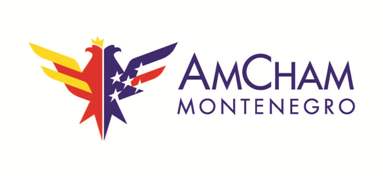
10
2020Connectivity has become the backbone of our daily lives, and network infrastructure is its foundation
Crnogorski Telekom, according to the official reports of the Agency for Electronic Communications (EKIP), once again has the fastest mobile network in Montenegro; at the same time, to its broadband internet customers Telekom offers access to the network of the new generation. Valentina Radulović, Director of the Technical Department of Crnogorski Telekom, writes for AmCham Blog about the importance of network infrastructure for the use of digital services in times of crisis, and investments in network development and new technology.
We notice only what we think noteworthy – said the British thinker Alan Watts – and therefore our vision of everything is highly selective. We were further convinced of this by the coronavirus pandemic, which made us notice everything we usually take for granted – digital services, network, and connectivity – as a necessary part of everyday life.
Digital technologies and services have enabled us to work and learn from home during the epidemic, to stay in touch with family and friends, and to organize our free time during self-isolation period. Connectivity has become the backbone of everyday life in the extraordinary circumstances in which we found ourselves, and network infrastructure was in its foundations, a condition without which the whole society would be paralyzed.
How much did we use the Internet?
Since the customer experience directly depends on it, the stability and reliability of the network infrastructure is in the focus of Crnogorski Telekom in both regular and extraordinary circumstances. Our infrastructure has withstood a significant increase in traffic in the previous months, which has enabled Telekom customers to perform their daily duties and chores without challenges. Moreover, the figures confirm this.
The most interesting is the usage of broadband internet for sending data, which has doubled (as much as 104%) compared to the seasonal peak in 2019, thanks to applications and services for video calls and conferences that we used to a greater extent for business and private purposes. Downloading data via broadband increased by 27%, and we recorded a similar trend among mobile customers (traffic growth of 65% for uploads, and 13% for downloads), compared to the same period.
The Fastest Network thanks to good decisions and strategic investments
This tells us – more clearly than ever – that our country has stepped on the path of digitalization and that the future in that direction is certain, but also that even greater connectivity and liberalization of the Internet are necessary.
Nevertheless, to achieve this, significant investments are needed. In previous years, Crnogorski Telekom has directed 80% of all investments in the development of network infrastructure – from the core network, through transport, aggregation and access network, all the way to the home of each customer – and I can say that this strategy has yielded results.
Once more, according to the latest official measurements of the Agency for Electronic Communications (EKIP), Telekom has the fastest 4G network in Montenegro, and thanks to the advanced fiber infrastructure, we offer our customers speed over 100 Mbps and access to the network of the new generation.
Do we really need new technologies?
However, telecommunications companies in Montenegro operate in a very challenging and limited market, which significantly affects future investments. The profitability of each new investment is carefully examined, and companies that do not have a well-thought-out development strategy lose the market game. Nevertheless, Telekom continues with investments, because the recent situation has shown that services we provide for our customers are among their basic and most important needs, and that the role of the operator during the crisis is crucial.
The industry we work in is among the most dynamic industries, and records a faster shift in technology and entire generations of technological innovation than any other. In my opinion, this is the greatest challenge for experts – testing and piloting new technologies, analyzing customer reactions, adapting them… And all this means not only the introduction of new technologies, but also the retirement of old ones, which can no longer respond to the needs of the customers.
However, this is not only a technical issue, but also a question of citizens’ readiness to accept new technologies and understand its application.
While it is up to my colleagues and me to analyze technological trends, potential costs, the benefits for the economy and citizens, before making decisions – as well as to motivate everyone who works on these projects to make additional effort in order to turn ideas into reality – we must all work together, both citizens and experts, on the previous question.








